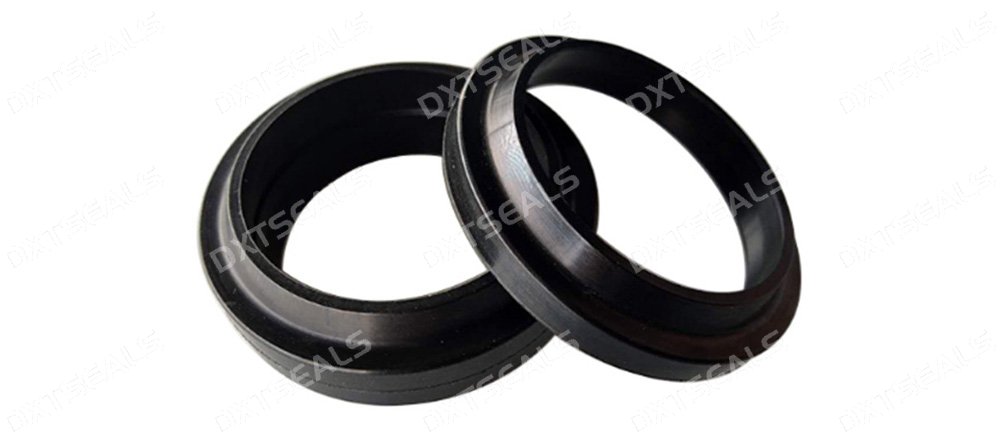
Rubber washers are essential components in countless industrial systems, offering reliability, durability, and versatility. Their unique material properties and functional advantages make them indispensable for a wide range of applications. This article explores the main features of rubber washers and their applications across industrial settings.
What Are Rubber Washers?
Rubber washers are flat, ring-shaped components crafted from various rubber materials. Designed primarily to provide sealing and cushioning functions, they also serve to dampen vibrations, prevent leaks, and protect surfaces from damage.
Key Features of Rubber Washers
-
Elasticity and Flexibility:
Rubber washers can withstand significant deformation while maintaining their sealing properties, making them suitable for dynamic applications. -
Durability:
High-quality rubber washers are resistant to wear and tear, offering long service life even in demanding environments. -
Chemical Resistance:
Depending on the rubber type, washers can resist exposure to oils, chemicals, and solvents, ensuring compatibility with industrial fluids. -
Vibration and Noise Dampening:
Rubber’s natural damping characteristics make these washers ideal for reducing vibration and noise in machinery and equipment. -
Temperature Tolerance:
Rubber washers can endure a wide range of temperatures, from extreme heat to cold, making them versatile for various applications. -
Customizability:
Available in a variety of sizes, shapes, and materials, rubber washers can be tailored to meet specific application requirements.
Common Materials Used for Rubber Washers
-
Nitrile Rubber (NBR):
Known for its resistance to oils and greases, NBR washers are widely used in automotive and industrial machinery. -
EPDM Rubber:
EPDM is ideal for outdoor applications due to its excellent resistance to UV rays, ozone, and weathering. -
Silicone Rubber:
Silicone washers are used in high-temperature environments and are valued for their flexibility and chemical resistance. -
Neoprene Rubber:
Neoprene washers combine oil resistance and weather resistance, making them suitable for diverse applications. -
Viton (FKM):
For harsh chemical environments, Viton washers offer superior resistance to aggressive fluids and high temperatures.
Applications of Rubber Washers in Industrial Settings
-
Sealing Applications:
Rubber washers are extensively used in pipelines, flanges, and joints to prevent leaks of gases or liquids. -
Machinery and Equipment:
Their vibration-damping capabilities reduce wear on components and improve machine longevity. -
Automotive Industry:
Rubber washers are used in engines, braking systems, and suspension setups for sealing and cushioning purposes. -
Electronics:
Rubber washers act as insulators and vibration dampers in sensitive electronic equipment. -
HVAC Systems:
They ensure airtight seals and reduce noise in heating, ventilation, and air conditioning systems. -
Construction:
In building projects, rubber washers provide cushioning and sealing in joints and fastening systems.
Advantages of Rubber Washers in Industrial Applications
-
Cost-Effective:
Rubber washers are affordable and offer excellent performance, reducing maintenance costs. -
Wide Compatibility:
Suitable for use with a range of fluids, chemicals, and environmental conditions. -
Eco-Friendly Options:
Modern manufacturing allows for sustainable rubber materials that align with environmental standards. -
Ease of Installation:
Rubber washers are simple to install and replace, minimizing downtime during maintenance.
How to Select the Right Rubber Washer for Your Needs
-
Identify Application Requirements:
Determine the operating conditions, including temperature, pressure, and chemical exposure. -
Choose the Appropriate Material:
Match the washer material to the specific demands of your application to ensure optimal performance. -
Consider Size and Thickness:
Proper sizing is crucial for ensuring a secure and effective fit. -
Verify Compliance:
Ensure that the rubber washers meet industry standards and certifications for safety and quality.
Conclusion
Rubber washers play a vital role in industrial operations, offering sealing, vibration damping, and protection benefits across diverse applications. By understanding their key features and selecting the right material, businesses can enhance efficiency and reliability in their systems. For high-quality, customizable rubber washers tailored to your industrial needs, consult with trusted manufacturers like DXTSEALS to ensure optimal performance and durability.
